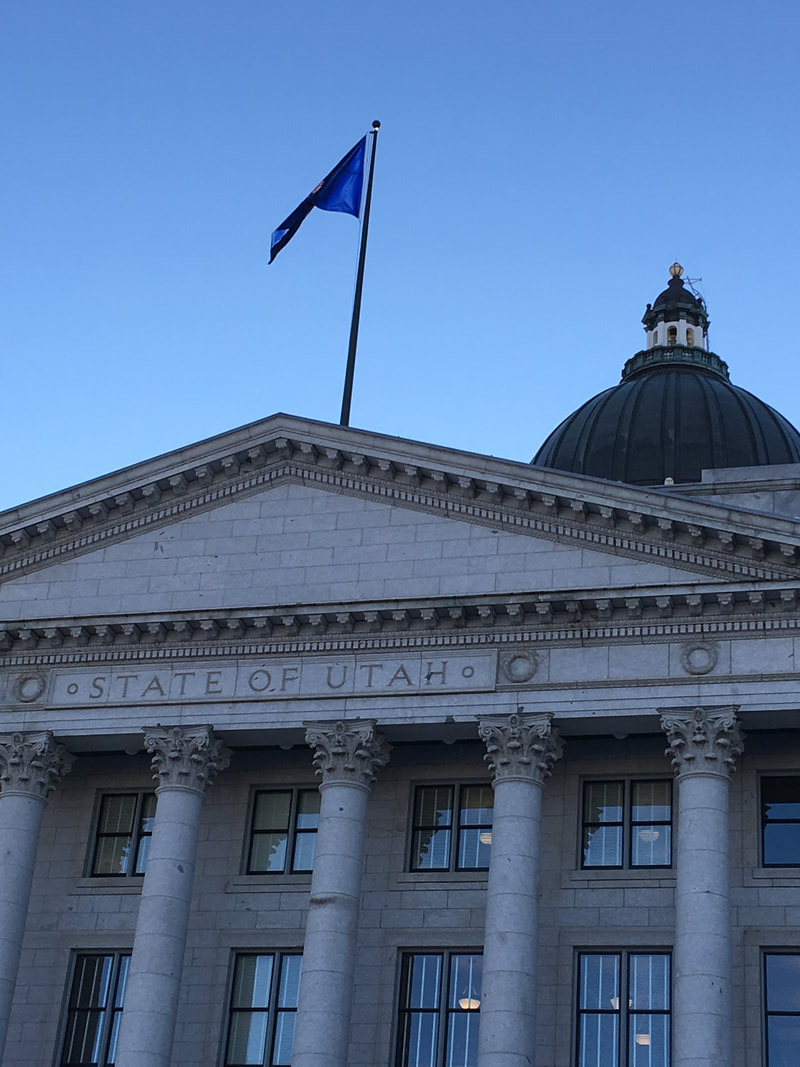| Utahns had to experience a painful, prolonged and ultimately tragic case involving a public official with dementia before finally getting a smidgen of a glimmer of a hope that such cases could be handled with dignity in the future. In its just-completed session, the Legislature passed SB38, which sets up a procedure for possibly removing an elected county officer who is mentally incapacitated. It could apply only to six counties because it was politically impossible to pass anything broader. That means the situation involving the late Salt Lake County recorder Gary Ott, who was protected from the media by top staffers despite exhibiting clear signs of dementia, could repeat itself in any of the other 23 counties without recourse. But despite that partial and tentative first step, it should be evident now that lawmakers need to take |
| | a broader leap by passing a full-blown recall law for all state and local elected officials. That won’t be easy, but it’s clear taxpayers deserve it, especially in Utah County, where one county commissioner is demonstrating the need in a big way. On Tuesday, according to a Deseret News report by Katie McKellar, Utah County Commissioner Greg Graves conveniently left the room when the subject of his own alleged misconduct came up. A spokeswoman for the group Alliance for a Better Utah used the commission’s public comment period to repeat the allegations against him. Being absent seems a habit of late for the commissioner. Late last year, the county attorney’s office released the results of an independent investigation into Graves’ conduct. The conclusion was that no evidence could be found to show Graves violated any laws or county policies but that, based on interviews with 14 employees, he is “widely viewed as a workplace bully, dishonest, demeaning, intimidating, threatening and explosive.” Witnesses described him as abusive and vulgar. One woman alleges he rubbed her leg above the knee as they sat in a golf cart, saying, “Don’t show it if you don't want it touched.” The county’s Republican leader and both of Graves’ fellow commissioners have called for him to resign. County GOP Chair Rob Craig said Graves “has made a mockery of his office” and of the party’s principles. But as bad as the so-far unproven allegations are, his absenteeism should be enough of an argument to pass a recall law. For about six weeks he stopped attending meetings, resurfacing in mid-January. Now he goes to commission meetings, but the Provo Daily Herald reports he is absent from most other meetings, raising questions about what taxpayers are getting in return for his $120,000 salary and $48,000 in benefits. State lawmakers had trouble this year finessing a bill to let counties remove someone only for a mental incapacity. They worried about inadvertently creating an excuse for political retribution. That’s not an irrational concern, but it’s worth noting that a lot of states have recall laws despite having more robust two-party systems than what we have here (admittedly not a high hurdle). Political retribution doesn’t seem to be a big issue in those places. Utah’s neighbors are worth studying. According to the National Conference of State Legislatures, recall efforts in Arizona may begin after someone has served six months in office, and they can be started for any reason. Organizers must gather signatures equaling 25 percent of the number of votes cast for that office within 120 days to trigger a vote. Nevada has a similar law with a 60-day signature-gathering limit. Idaho allows recall efforts to begin after 90 days in office, and the petition requirement is for 20 percent of voters. Colorado leaves recalls up to local governments but imposes a 25 percent voter requirement for petitions. Wyoming limits recalls to cities with commission forms of government. Recalls may commence at any time for any reason and with no time limit for gathering signatures. In Utah, voters have no recourse when allegations mount against someone they elected. Times are changing. Sexual harassment allegations nationwide have raised accountability to new levels in many occupations. The need for a recall law, even absent Grave’s alleged behavior, ought to rise above political concerns. Surely, Utah lawmakers could set the bar high enough to calm fears of political shenanigans while giving taxpayers some recourse. |


 RSS Feed
RSS Feed

